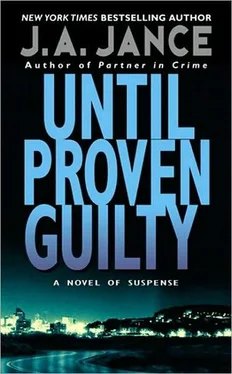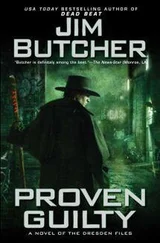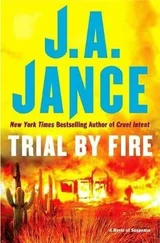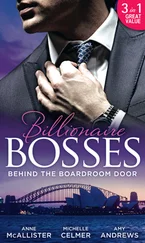J. Jance - Until Proven Guilty
Здесь есть возможность читать онлайн «J. Jance - Until Proven Guilty» весь текст электронной книги совершенно бесплатно (целиком полную версию без сокращений). В некоторых случаях можно слушать аудио, скачать через торрент в формате fb2 и присутствует краткое содержание. Жанр: Детектив, на английском языке. Описание произведения, (предисловие) а так же отзывы посетителей доступны на портале библиотеки ЛибКат.
- Название:Until Proven Guilty
- Автор:
- Жанр:
- Год:неизвестен
- ISBN:нет данных
- Рейтинг книги:4 / 5. Голосов: 1
-
Избранное:Добавить в избранное
- Отзывы:
-
Ваша оценка:
- 80
- 1
- 2
- 3
- 4
- 5
Until Proven Guilty: краткое содержание, описание и аннотация
Предлагаем к чтению аннотацию, описание, краткое содержание или предисловие (зависит от того, что написал сам автор книги «Until Proven Guilty»). Если вы не нашли необходимую информацию о книге — напишите в комментариях, мы постараемся отыскать её.
Until Proven Guilty — читать онлайн бесплатно полную книгу (весь текст) целиком
Ниже представлен текст книги, разбитый по страницам. Система сохранения места последней прочитанной страницы, позволяет с удобством читать онлайн бесплатно книгу «Until Proven Guilty», без необходимости каждый раз заново искать на чём Вы остановились. Поставьте закладку, и сможете в любой момент перейти на страницу, на которой закончили чтение.
Интервал:
Закладка:
“Great,” she said enthusiastically. “I’ll stop by about then.”
Anne walked out the lobby door with us. The red Porsche was parked on the street. “Do you need a ride?” she asked, opening the door.
I waved her away. “No thanks.”
Peters whistled as the Porsche rounded the corner onto Blanchard. “That’s her car?”
“Nice, isn’t it.”
“Beau, who the hell is she?” I gave him a warning look, just one, and he let it drop.
We took the recording to Sergeant Watkins. As predicted, he was not pleased. He listened to the tape in stolid silence and heard our analysis without comment. “Play it again,” he ordered. We went over Monday’s confrontation in great detail and heard the tape yet again.
“Taking everything into consideration, you might be right,” he allowed reluctantly. “But you’re drawing conclusions. None of this has any basis as evidence. It’s a damn shame this state can’t even spring for voiceprint equipment. So what are you going to do now?”
“Go looking for someone else.”
“So look,” he said. “Nobody’s stopping you. We’ve got Carstogi locked up until Monday afternoon with what we’ve got so far. What have you got to lose?”
Peters and I went back to the drawing board. We went over the previous Thursday in minute detail, listening to the initial recorded report of Angela’s disappearance, as well as the statements taken later. We learned nothing new.
We tried Sophie’s house. We wanted to know if she had seen a van, the one Jeremiah had told us about. Nobody was home but Henry Aldrich, the cat, and he wasn’t talking.
At one-twenty Anne showed up for lunch. We invited Peters, but he claimed to be busy. We left him at his desk and ate in a little Mexican dive at the foot of Cherry. Anne was brimming over with infectious happiness. She had found a minister to marry us and had made arrangements for the ceremony to be held at six a.m. in Myrtle Edwards Park.
“Why there?” I asked. “And why so early?”
She shrugged. “I like it there,” she replied, “especially in the morning when it’s quiet.”
Anne walked me back to the Public Safety Building and kissed me good-bye on the sidewalk, much to the enjoyment of a group of street people gathered around the hot bagel stand outside the front door. “I’ll see you when you get off work,” she said. “I’ll be at your place.”
I went up to the fifth floor to find Peters pacing impatiently beside my desk. “Come on,” he snapped. “We just hit the jackpot. A grit-truck driver from the Westside Treatment Center saw a black van parked near where Angela was found. He saw it about nine-thirty the morning she died.”
“No shit!” We were already on our way to the elevator. “So where has he been all this time?”
“He just got back in town from a fishing trip. He hadn’t seen anything about the murder on the news, but someone was talking about it when he went out to pick up a load this afternoon. He called about ten minutes after you left for lunch.”
As usual, we had to wait for an elevator, and as usual too, it would have been faster to take the stairs.
Dick Aubrey, the grit-truck driver, turned out to be a wiry, tough little man with a fiery temper and an ever-present cigarette. He had been fishing in Idaho since the previous Friday afternoon.
“I came down the hill around nine-thirty or so, and here’s this big black van parked almost in the middle of the friggin‘ road. I blew my horn at him a couple of times to get his attention.”
“Him?” Peters asked. “You could tell it was a him?”
“Oh, sure. He was just starting to climb out of the van. I almost took the door off.”
“What did he look like?”
“Big. Straight yellow hair, long. Overweight.”
“Would you recognize him if you saw him again?”
“Sure. I got a pretty good look at his face. He was an ugly son-of-a-bitch.”
I brought out some glossies of both Pastor Brodie and Brother Benjamin, taken at the funeral. We had purchased them from the P.I. We also showed him Carstogi’s mug shots. “Any of these?” I asked.
Aubrey stroked his chin. “Naw. None of these guys. I’m sure of that. This guy was built like a tank. About six-five. Neck like a bull.”
“What happened next?” Peters urged.
“Well, I went down to get loaded. You haul two things out of sewage plants, sludge and grit. I do grit. I figured if he was still there when I got ready to leave, I’d call and have him towed away, but by then he was gone. It’s a pain in the ass having cars parked on that road. It’s too narrow.”
We picked Dick Aubrey’s brain. He came down to the Public Safety Building and did a composite sketch. With the Identikit sketch in hand, Peters and I went over the names of everyone we had questioned in connection with the case. We were able to put names and faces with every person but one. Angela Barstogi’s Uncle Charlie had to be the wild card in the deck.
We took the sketch and went to see Sophie. This time she was home. We walked up to her front door and could hear the television set blaring through the wood. Peters knocked, twice.
“Oh,” she said, “are you coming to arrest me?”
Peters laughed. “No, we’re here for some help.”
We went inside. The cat, inside now, was already on the couch. He took a dim view of sharing it with company.
Peters brought out the sketch Aubrey had made and handed it to Sophie. She held it close to her face, examining it first with the pointed glasses in place and then with them lowered so she could peer over them. She handed it back to Peters.
“Maybe,” she said.
“What about a van? Do you remember seeing one of those in the neighborhood?”
She furrowed her brow. “I do, now that you mention it, a black one, but not the last few days. I thought it was part of the group. I saw it a few times, usually in the morning.”
“Will you call us if you see it again?” I asked. “Try to get the license number and call us right away.”
“I most certainly will, young man,” she said. I got the distinct impression Sophie Czirski still didn’t approve of me.
We escaped without having tea. We went back to the department and reported to Watkins. We felt like we were making progress. We sent for motor vehicle reports on a list of known sexual offenders in the state of Washington. It’s the grunt work, routine things, an expired vehicle license or an unpaid traffic ticket, that often break a case. We left the computer folks to pull together the information we needed.
“Ready to call it a day?” I asked Peters.
“How about stopping by for a drink on the way home. I’ll buy.”
I glanced surreptitiously at the clock, trying to remember exactly when I had told Anne I’d be home.
“Come on,” Peters insisted. “You’re not married yet.”
I took the bait. “All right,” I agreed. “I guess I can stop off for a while.”
Chapter 18
We went down to F. X. McRory’s on Occidental Street. Peters got off on the right foot by buying a bottle of champagne. “All right, you closemouthed bastard,” he said, raising his glass, “now that I’m a party to this little romance, you’d better tell me about her.”
I didn’t need to be asked twice. I hadn’t had a chance to tell anyone about Anne. I’m afraid I waxed eloquent. I told him how she had looked at the funeral and about our first dinner at Snoqualmie Falls afterward. I told him about the Porsche and the fur jacket and the Doghouse and the depth and the laughter and the wit and the sudden darknesses, all the things that seemed so contradictory in Anne, and all the things that made me love her.
About that time Captain Powell showed up and, uninvited, took a chair at our table. “What’s this I hear about you getting married?”
Читать дальшеИнтервал:
Закладка:
Похожие книги на «Until Proven Guilty»
Представляем Вашему вниманию похожие книги на «Until Proven Guilty» списком для выбора. Мы отобрали схожую по названию и смыслу литературу в надежде предоставить читателям больше вариантов отыскать новые, интересные, ещё непрочитанные произведения.
Обсуждение, отзывы о книге «Until Proven Guilty» и просто собственные мнения читателей. Оставьте ваши комментарии, напишите, что Вы думаете о произведении, его смысле или главных героях. Укажите что конкретно понравилось, а что нет, и почему Вы так считаете.












